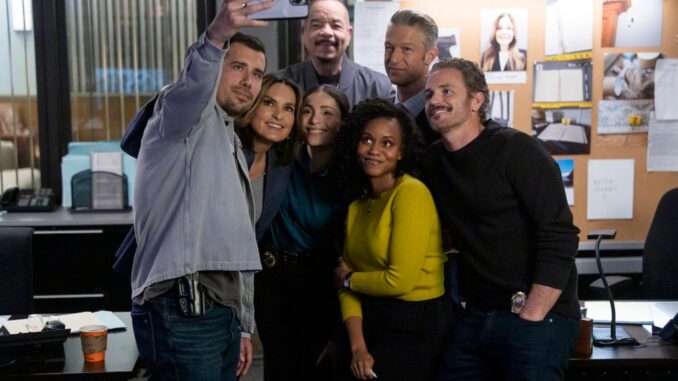
The amber glow of late afternoon sun, filtered through the oak leaves still clinging stubbornly to their branches, spilled across our Thanksgiving table. It illuminated a tableau of abundance: the bronzed, majestic turkey at its center, flanked by mountains of cranberry sauce, rivers of gravy, and islands of sage stuffing. The air was a symphony of scents – warm spices, roasted poultry, the sweet tang of apple pie cooling on the counter, all underscored by the subtle earthiness of burning firewood in the hearth.
Laughter, gentle chatter, and the clinking of cutlery formed a harmonious hum, a domestic soundtrack to our annual ritual of gratitude. My grandfather, his spectacles perched on the tip of his nose, regaled us with a familiar, well-loved anecdote about a particularly ambitious turkey from his youth. Cousins squabbled good-naturedly over the last drumstick. My mother, flushed with the warmth of the oven and the joy of her gathered family, wore a smile that radiated pure, unadulterated peace. We were a self-contained universe, cushioned by warmth, well-being, and the unspoken certainty that, in this moment, all was right with the world.
Then came the knock.
It wasn’t a tentative tap, nor a hearty pound from an expected late arrival. It was sharp, insistent, and utterly alien to the gentle rhythm of our afternoon. Thump-thump-thump. Three distinct raps, like a stone skipping across a frozen pond, reverberating through the heavy oak door and, it seemed, through the very floorboards beneath our feet.
The laughter died first, replaced by a collective intake of breath. The clinking ceased. The purr of conversation evaporated, leaving behind a sudden, almost oppressive silence. All eyes, momentarily glazed over with holiday contentment, now focused on the door, then on each other, a flicker of uncertainty replacing the earlier mirth. My mother’s smile faltered, her brow furrowing with a question. The peace, so robust and seemingly unshakeable moments before, felt suddenly fragile, like a precious glass ornament teetering on the edge of a shelf.
My father, ever the practical one, pushed back his chair, the screech echoing unnaturally in the quiet room. As he walked towards the foyer, each step seemed to amplify the unsettling awareness that the outside world, a realm of cold, of need, of the unexpected, had suddenly intruded upon our sanctuary. The golden light in the dining room seemed to dim, its warmth less potent.
He opened the door.
A blast of raw November air, sharp with the scent of wet leaves and distant woodsmoke, swept into the house, bringing with it a gaunt silhouette. Hunched against the gathering twilight, a figure stood on our stoop, a man whose threadbare coat offered little defense against the biting chill. His face, etched with lines deeper than his years, bore the tell-tale signs of hunger and relentless cold – hollow eyes that held a universe of unmet needs. He wasn’t aggressive, or even demanding, simply present; a living, breathing testament to the world beyond our insulated walls. He held out a skeletal hand, not for food, but for… something. For recognition. For warmth. For help.
The sight was a mirror shattered. The illusion of our self-contained abundance, perfect and unassailable, cracked. The immediate impulse to offer a plate, to invite him in, was tangled with a sudden, unsettling awareness of vulnerability. Guilt, like a cold draft, snaked through the room. We had so much. He had so little. Our peace, rooted in our comfortable bubble, was suddenly exposed as superficial, easily broken by the undeniable reality of another’s suffering.
My father, after a moment of stunned silence, spoke to the man in low, urgent tones. He brought out a plate, wrapped in foil, a hot mug of cider, and an old, heavy blanket. The man nodded, a profound gratitude in his eyes, and shuffled away into the deepening gloom.
When my father returned, the air in the dining room was different. The silence was no longer peaceful, but thoughtful, heavy. The taste of the rich food in our mouths felt different now, tinged with a complex flavor of privilege and responsibility. Grandfather’s anecdote seemed trivial. The squabbling cousins were quiet, their faces solemn. My mother’s smile was gone, replaced by a gaze that was both somber and deeply compassionate.
The knock at the door had ended our Thanksgiving peace. But in its place, it had sown something else: a humility, a sobered gratitude, and an unshakeable understanding that true peace isn’t merely the absence of disturbance within one’s own walls, but a profound connection to, and compassion for, the world that exists beyond them. Our holiday table, once just a symbol of our good fortune, now felt like an offering, a reminder that our abundance carried with it an echoing demand for shared humanity. The peace was broken, yes, but in its fracture, it revealed a deeper, more challenging, and ultimately more meaningful truth.
